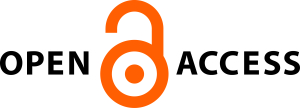Perspectives and a plethora of New Educational and Entrepreneurial Approaches between 2020–2023 in Andhra Pradesh, India
Abstract
COVID-19 has pushed 75 million Indians back into poverty; the risk-control decisions to slow down the
virus by the Indian government have adversely affected the education system in the country and led students
into temporary 'home-schooling' situations in 2020–2021. The present study focused on the inconvenience
caused to students living in Visakhapatnam, identifying the technology that has prompted new examples of
educational innovation and its impact on the trajectory of learning innovation and digitization in the Indian
education system, on a random sample of 309 students from 8 schools under the public, private, and unaided
categories. The sample size calculated on a sample of 'n' student beneficiaries is n = z2*p q /d2 (calculated on
n = the desired sample size, z = the normal standard deviation, p = the proportion in the target population, and
d = absolute precision or accuracy). The data was analysed using a mixed methodology, using a quantitative
sampling method by sending an online questionnaire and qualitatively measuring the responses of the target
group by percentage. The centuries-old, classical, or lecture-based approaches to teaching methodology,
entrenched institutional biases, and outmoded classrooms are still prevalent in some poverty-stricken
regions and developing states like Andhra Pradesh in India. In 2023, the education system continued to
practice learning anywhere, at any time. Learning outcomes with digital education in various formats
positively impact education. The classical in-person classroom can complement new learning modalities,
from live broadcasts to 'educational influencers' to virtual reality experiences. Bridging the gap between
classical and contemporary teaching methods, improvising learning, and heading towards lifelong learning
by making it a habit integrated into daily routines is valid and should be made a lifestyle.


